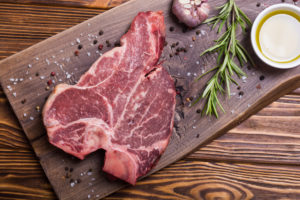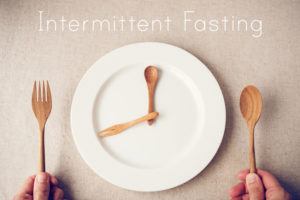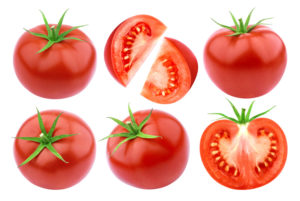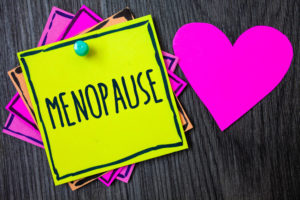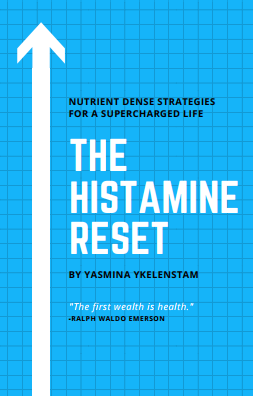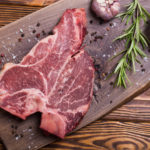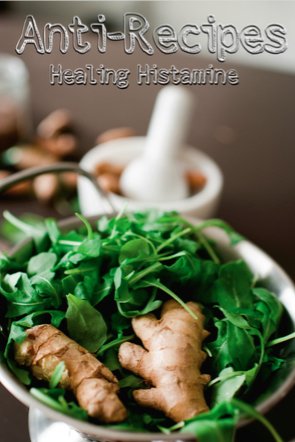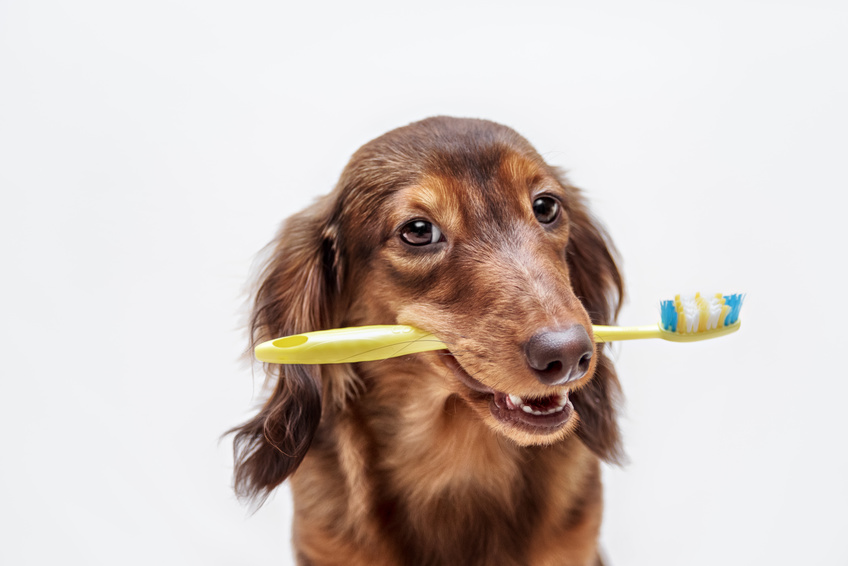
When dental hygiene doesn’t prevent bleeding gums and cavities, it’s time to look to histamine, mast cells and the wondrous world of bacteria living in the mouth. Dentist and author Dr. Steven Lin shares the tell tale signs of mouth flora imbalance, and how histamine and mast cells may contribute to gingivitis, dental erosion, and bleeding gums.
You can listen to the interview using the player below, or read the transcript just underneath.

Yasmina :
Today, I’m interviewing Dr. Steven Lin, a dentist with a focus on nutrition. He’s been published on platforms such as TEDx, the Sydney Morning Herald, the British Dental Journal, the Huffington Post, and About.com. He’s currently writing his own publication, The Dental Diet, which will be released by Hay House in the United States, the UK, Australia, and Germany in January 2018. Dr. Lin’s CPD-accredited practitioner-training course, Nutrition and the Dental Practice, is educating a new wave of dentists to incorporate preventive dietary principles into oral health care. His own platform, DrStevenLin.com, has a rapidly growing audience of over 100,000 followers. In addition to being an amazing dentist, researcher, writer, just all-around human being, Steven is a friend of mine, and I’m really excited to have him here today and to talk about something that is of great interest to our growing community, which is our dental health.
Now, I was really excited to talk to Dr. Lin about this a few months ago, where I mentioned that one of my odd symptoms, back in the day when I was having really bad ones … In my heyday, I was having upwards of 55 of them. I mentioned that bleeding gums were a huge problem for me, something that really freaked me out at the time, and he said that there is actually a mast-cell/histamine link. That’s what we’re going to be focusing on today, dental health and histamine and mast cells. Dr. Lin, thank you very much for joining us here today.
Dr. Lin:
It’s great to be here, Yasmina. It’s been a while since we talked, but I’ve been thinking about this a lot. I’ve actually been doing a lot of reading and also working with some patients, talking about some of the links between gingivitis and mast cell over-reactivity in the body, so I’m really excited to talk to you about it today.
Yasmina :
What do bleeding gums have to do with mast cells and histamine generally in your experience and in your research? Because you are a fabulous researcher and there is a plethora of amazing information on your website.
CLICK HERE FOR A FOUR WEEK HISTAMINE RESET WITH MEAL PLANNERS, STRESS RELIEF STRATEGIES & MORE
Dr. Lin:
When we start to think of the mouth as an immune bacteria interface, just like our gut, then we start to see that bleeding gums might be a way that our relationship with microbes is a little bit out of whack. When we start to think of our oral cavity and our mouth, really it’s the home of many, many bacteria, over 600 species, thousands and thousands and thousands of different types of bugs, then we really should be trying to harbor the overall health of this ecology of the mouth instead of just trying to remove harmful bugs. Because if we think of disease as just being the invasion or infection of harmful bacteria, that’s a really small part of the story. With many dental diseases, we actually see that the invasion of the bad bacteria is the last bit of the story. Bleeding gums is actually part of the steps on the road to when we form gum disease.
Just to go over gum disease, it’s a chronic inflammation process. It happens over many, many years, progresses at different paces in different people. That’s obviously because of many different factors, but what eventually happens is that your gums themselves erode, the bone that holds your teeth in jaw erodes because of the chronic infection, and your teeth get loose and they fall out. Now, I’ve seen patients where I’ve had to remove all of their teeth by their late thirties, early forties, so this is a big problem. What we’re really speaking to here is that in the mouth, we can really start to see potential imbalances that are occurring right through the body. The connection to histamine and inflammation is a really interesting one. That’s obviously the one that we started to talk about all those few months ago.
Yasmina:
I brush my teeth. What am I looking for? Is it a stream of blood? Do I notice blood on my toothbrush? Is it just a little bit of a tint when I spit into the basin, or is it when you’re eating something maybe a little hard, like an apple that rubs against the gums? What are the first signs of this?
Dr. Lin:
Probably you’ll find it on either your floss or the brush after you brush. It’ll be a little bit of red when you spit out into the basin. That’s usually first signs. Then, as things start to get a bit worse, we start to get a stream. Your gums become more and more inflamed, and the arterial flow of blood increases. That’s when you start to see streams of blood. Then, once you’re at the point where there’s streams of blood, your gingivitis is a long way along in the process. If you see a tint of blood when you’re brushing or on your toothbrush, that’s really the first sign. If you’re eating and you see blood, that’s pretty severe gingivitis. Any sign where you visibly see blood is a pretty sure signal that you’ve got at least mild to moderate gingivitis.
Yasmina :
This gingivitis, in your research and the current research of what we know, is there one particular cause? If you have a cause, is flossing and doing all these kind of things actually doing anything for you, or do you need to address the root cause?
Dr. Lin:
That’s the interesting thing. You probably saw The New York Times that came out earlier in 2016 where they actually went through the scientific research and they showed that flossing didn’t have a clinical or scientifically-backed benefit against gingivitis. That’s actually because there are many things happening in the mouth. While clinically, I see patients … Once we fix up their oral hygiene, it is a factor. It does help, yes, but is it the only factor? No. The real way that we can get control of our gingivitis is via understanding the oral microbiome. That’s where we see that the bugs that live inside your mouth actually perform beneficial procedures in the body. They’re actually managing your oral environment. Probiotic bacteria actually perform chemical and competitive behaviors that prevent bad bacteria from growing.
Gingivitis is where your immune system is detecting bad bacteria and it’s sending blood and immune cells to get rid of it. What happens is there’s too much inflammation. We have an over-reactive immune system, and that’s where we get this chronic…
Yasmina :
That’s where the histamine comes in.
Dr. Lin:
Exactly. In gingivitis, what they show, even in the first stages of bleeding gums, is that we have an increase in histamine. What they show is that histamine and mast cells participate in the gingivitis-to-gum-disease process the whole time, but they don’t know exactly what cause or whether they’re actually causing the progression to gum disease. Some gingivitis, for instance, won’t progress to gum disease. Now, they don’t know exactly where the mast cells are directly contributing to this, but what they do know is that in both situations, mast cells are present and active.
What some of the good research is showing is that gum disease is actually a loss of organization of the immune system in the mouth. When you have an organized immune system, our immune reaction is normal. It’s tolerant. It gets rid of pathogens efficiently. Once we have an imbalance, his is where mast cells come in, because mast cells are just releasing histamine quite blindly. That’s where things go wrong. When we have an intolerant, chaotic immune system, that’s where we get gum disease. That’s where we have this progression from bleeding gums, which is the first sign, onto gum disease.
Yasmina :
Just to explain to my readers a tiny bit, because some aren’t really familiar with the whole mast-cell thing, I’m just going to explain a bit. Basically, in our body, people are kind of familiar nowadays with the concept of histamine being in foods. If you have a problem with too much histamine, it might be because you’re told you have too little of the histamine-degrading enzymes like DAO. You might have a genetic polymorphism for HNMT, another histamine-degrading enzyme, so we’re told to avoid histamine-containing foods.
What is not often explained to people who are diagnosed on a nutritionist level is that histamine is also found in the body in mast cells, that’s M-A-S-T cells, which are a key component of the immune system. Basically, within these mast cells live histamine and dozens of other inflammatory agents like prostaglandin, interleukin, leukotrienes, and when mast cells are disturbed in some way, or released in response to allergies or to infection or whatever, they break open in a process called degranulation, and this releases histamine and other inflammation into the body.
Now, some people have mast cells that are unstable and are leaking when they’re not supposed to be. Other people, there is a cause, such as, for example, gingivitis, which I am quite sure that I had for many years. I was scared to go to the dentist because I knew I was reactive to anesthetics and I was just really scared to go. A lot of people with histamine issues have problems with anesthetics, but there are certain types that you can use. I was not going, and that’s when the whole bleeding-gum thing started.
As Dr. Lin is explaining, when the gingivitis occurs, the mast cells that are present in the body, and they’re all over the body, go to the area where the infection or any kind of bacteria imbalance is happening to try and help. Think of the mast cells in this case as an ambulance. They get to the scene of whatever’s going on, the infection, and they degranulate, and of these inflammatory elements that’s released, histamine is the first responder. It goes to the area, it creates the inflammation, and allows the other bits to get in there and begin the healing process.
It seems for some people that the mast cells can exacerbate the situation, because people with mast-cell issues, the inflammation just continues giving and giving and giving and giving either after the issue is resolved or, in the case of gingivitis, it might just be chronic. The issue itself is not resolving, so the mast cells just keep leaking and leaking and leaking and leaking, and it turns into a chronic, inflammatory condition. There was a link, isn’t there, between heart attacks and gingivitis?
Tired of trying to figure out what to eat everyday? Take the hassle out of meal planning here.
Dr. Lin:
Yeah. Gum disease, exactly. They’ve linked that people who have gingivitis have a much higher risk of heart disease. They’re really still trying to knot out exactly what causes that link, but the immune-system regulation really seems to play a part in that. What you described there, which you described really well, by the way, I see that a lot in patients, where we have these bleeding gums and there’s actually no real explanation for it. They brush well. They floss well. Their diet doesn’t terribly explain why their gums would bleed. It’s actually a sign that their mast cells and their histamine response is over-responsive. It’s interesting. For people who, for instance, react to foods that contain histamine, bleeding gums may be a sign that their immune system is also potentially a little bit too over-reactive, and perhaps that they’ve got some kind of immune and inflammation problem. A lot of people do now.
Yasmina :
Very interesting. How do we resolve gingivitis? Let’s say, what are the steps that we can take? My first question, actually … Well, this ties into that question, but is there such a thing as a probiotic that you just swish around your mouth, or is it more about diet?
Dr. Lin:
There’s actually a fair bit of research backing oral probiotics for gingivitis. Lactobacillus bug’s good for their bacterium, because what they do is they’re the defense factors. Your probiotic bacterium in the mouth will defend against and they’ll stop the harmful bacteria from building up that causes the inflammation in the first place.
An oral probiotic, I recommend that, especially if there are persistent bleeding gums and gingivitis, as a starting point. Dietary behavior in the long term really is the gold standard in terms of how are we going to get our mouth, but also our gut and that relationship between bacteria and the immune system, back working properly. The oral probiotic area really is quite interesting. You can have them sometimes in a yogurt, or in a powdered satchel, you can get probiotics in. Some are in a mouth rinse.
Yasmina :
Oh, a mouth rinse. Okay, that’s interesting. I suppose you could just make your own, really. Could you make your own? Could you mix it with a little bit of water, or into juice or something, and just swish it around? Would that work? Because I know a lot of my readers have sensitivities to commercially prepared liquids.
Dr. Lin:
Yeah, completely. This goes back to the long-term solution. The best probiotic is always going to be fermented foods. If they tolerate dairy, you get a lot of the Lactobacillus species from that. Otherwise, a coconut kefir would be quite good, cheeses, or kombucha, or sometimes even something like an apple-cider vinegar.
Yasmina :
Ooh, interesting. That’s a great one.
Dr. Lin:
Yeah. It’s simple as well. Always diluted down, because it is acidic, but it’s a by product of a fermentation process, so it’s got quite interesting benefits. There’s quite good research showing that it decreases even insulin insensitivity in Type II diabetics. It all starts in the mouth. The benefits are all over the body. Not just in the gut, but also the mouth.
Yasmina :
Absolutely. Let me just ask you quickly. Those little brushes that … I don’t know how to describe them. They’re like toothpicks, but they have a little brush on the end. Are those too much for people with sensitive bleeding gums? Should they wait, or is that more effective? Does it do anything?
Dr. Lin:
Generally, I find, yeah. I think you’re talking about the picks that look like little toilet brushes?
Yasmina :
Yes! Exactly.
Dr. Lin:
Yeah. Good way to put it, right? They work great, actually, because the big problem with flossing is that people find it hard to get in there, so if you get a small one, it’s not going to be too traumatic on your gums and you can actually get to the places where it’s inflamed. That can really help to help clear out … Because you get plaque build up. If it stays there, and this pathogenic plaque isn’t removed, then that can really take things onto gum disease. Yeah, that can really help. Oral hygiene does play a part in the whole factor. That’s right.
Yasmina :
What would be your top foods? Because my readers, most of them don’t do well with fermented foods. I know some of us can do them in small quantities, but are there any other types of foods that help build that great bacteria that we need that will then affect our oral health?
Dr. Lin:
Yeah. Really, what your oral and gut bacteria need is fiber. Plenty of vegetables, prebiotic, like …
Yasmina :
Chicory?
Dr. Lin:
Asparagus, leeks. Yeah! Chicory, exactly. Artichokes. That’s really going to feed the beneficial bacteria in the mouth. That’s what they require. I’d really think about cutting down on the simple sugars, any kind of white flour, any kind of added sugar, because that will feed the harmful guys.
Yasmina :
What about fruit sugar? Let’s say whole fruits?
Dr. Lin:
That comes with sugar. Look, as a dentist, this is my bugbear because I see so many problems with sugar, but whole fruit with the fiber included is beneficial. I usually try tell people to limit it, just because there is a high sugar quantity compared to other foods, but exactly, eating an apple a day, or banana’s got prebiotic fibers as well, so that’s great.
Yasmina :
Exactly. Inulin, right?
Dr. Lin:
Yeah. Inulin’s great.
Yasmina :
To put it all into a nutshell, you’re brushing your teeth, you notice there’s some blood. What steps should we be taking to address the matter? If you could give me your checklist of one, two, three, four, five, in order that they should be done and in order of importance.
Dr. Lin:
Sure. First of all, I would be checking your own oral-hygiene regimen, so brushing twice a day and flossing. That’s a good start. Most people, they don’t perform their oral hygiene properly. That’s always a good start, and sometimes that can get you back on track. Now, if your gums are bleeding, you should also go and see a dentist, get a diagnosis, because it can be a sign of more serious problems. Number two is to go to get a check from your dentist.
Yasmina :
Very important.
Dr. Lin:
Yeah, exactly, but number three really is start to think about how your gums are a sign of wider inflammation and potentially histamine-release from mast cells in your body. You really should start to be thinking about how to rebalance your oral environment. I would think about an oral probiotic as a way to perhaps get things rebalanced. Then from there, four and five really is to put more fiber into your diet. Plenty of fruits and vegetables, prebiotic fibers like the bananas, like the artichokes, leeks. Then, really, if you do tolerate them, I know some of your listeners won’t be able to, fermented foods in the long term, that’s the most diverse and richest probiotic-
Yasmina :
The Holy Grail of food.
Dr. Lin:
The Holy Grail! Yeah. The Holy Grail of our microbiome.
Yasmina :
Okay. That’s wonderful. Any other steps you would recommend?
Dr. Lin:
It’s really monitoring. Your mouth really is a sign of what’s happening in your body. If your gums are bleeding, try and think about what other systemic conditions that you might have that are indicating. Perhaps you’ve got something wrong in your gut. If you have food allergies, or you have skin rashes or asthma or irritable bowel syndrome, that’s your body telling you in two distinct places that things are off balance, so I would really be taking bleeding gums as a message that there’s too much inflammation in your body. I would take going through those steps really to try and calm everything down in the long term.
Yasmina :
Okay. Something that you had said to me: tooth decay is not an infection.
Dr. Lin:
Yeah, exactly.
Yasmina :
A lot of people will be surprised to hear that.
Dr. Lin:
Yeah. It’s the same thing. We’ve talked about how gum disease is a lack of or an imbalance in the wrong bacteria. Tooth decay is the same thing. It’s a different process, though. Bacteria in your mouth actually manage the minerals, so from your saliva, and they actually require the minerals themselves to build the plaque. They do this because they need to survive. The mouth’s a hard place to survive. What happens is that when we feed our oral bacteria with too many simple sugars, the bad guys grow, they release too much acid, and eventually they take minerals from the teeth, because a low pH strips the calcium from our saliva, and eventually the bacteria have no choice but to take minerals from our teeth. We force our oral bacteria into causing a hole in our teeth, which is pretty amazing.
Yasmina :
Absolutely. Wow. That’s amazing. I’m so glad we had this conversation a while back, because it was really something that was bothering me and I couldn’t work it out. Eventually, I got over my fear of anesthesia and the dentist, and I started going regularly again, and it just completely disappeared. Obviously, I was making other changes at the time, my diet, definitely started focusing on the prebiotic foods because I wasn’t able to tolerate the probiotics, but suddenly, it all came together and I stopped having the problem, but I had never really resolved it in my mind how they were linked. Yeah, it’s absolutely fascinating.
Thank you very much for speaking with me here today. Just to remind everybody, you have finished writing your book. You’ve finished writing a book that is going to be published by Hay House in the US, the UK, Australia, and Germany in January 2018. I am pre-ordering my copy as soon as that option becomes available. You can follow Dr. Steven Lin on Facebook, Instagram, Twitter, and LinkedIn, @DrSteven, that’s S-T-E-V-E-N L-I-N. Dr. Steven Lin. You’ll find his website here.
Dr. Lin:
Absolute pleasure, Yasmina. It was such great talking about this.
CLICK HERE FOR A FOUR WEEK HISTAMINE RESET WITH MEAL PLANNERS, STRESS RELIEF STRATEGIES & MORE


